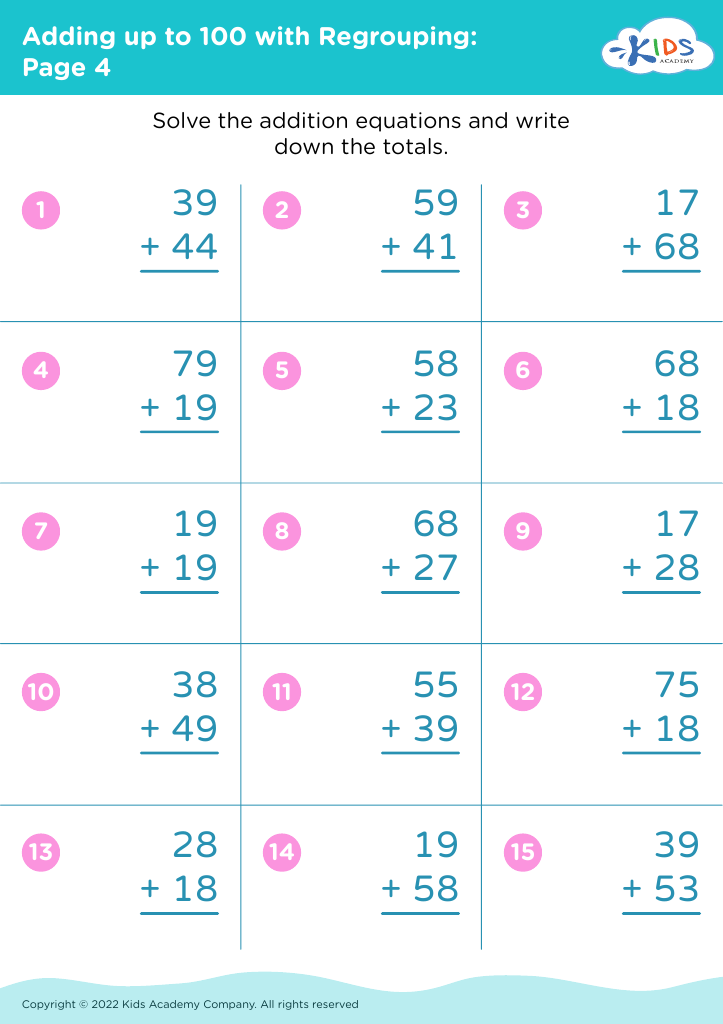Vocabulary Building Adding up to 100 Worksheets for 7-Year-Olds
3 filtered results
-
From - To
Unlock your child's potential with our "Vocabulary Building Adding up to 100 Worksheets" designed specifically for 7-year-olds! These engaging worksheets combine math practice with essential vocabulary development, helping young learners enhance their understanding of numbers and language simultaneously. Each activity promotes critical thinking and reinforces math concepts while introducing new words and phrases. Perfect for classroom or home use, our worksheets make learning fun and interactive! Encourage your child's growth in both mathematics and vocabulary skills, paving the way for future academic success. Feel free to explore our collection and watch your little learner thrive!
Vocabulary building is crucial for 7-year-olds as it lays the foundation for effective communication and comprehension. At this age, children are still developing their language skills, and a rich vocabulary enhances their ability to express thoughts and ideas clearly. This is not only important for their social interactions but also vital for their academic success. When children have a strong vocabulary, they can understand complex texts, follow instructions better, and articulate their feelings, leading to increased confidence in their abilities.
Additionally, vocabulary instruction, especially focusing on numerical concepts such as "adding up to 100," fosters critical thinking. By learning to manipulate numbers and relating them to real-world contexts, students develop problem-solving skills. Engaging children in games and activities that promote vocabulary, such as word games or discussions around math concepts, can also make learning enjoyable and less intimidating.
Furthermore, frequent reinforcement through reading, conversation, and creative play can make vocabulary acquisition a natural part of their daily life. Parents and teachers should actively engage in vocabulary building to equip children with the tools they need for future academic success and effective communication throughout their lives. Ultimately, investing time in vocabulary growth is an investment in a child's overall development.








%20(1).jpg)









